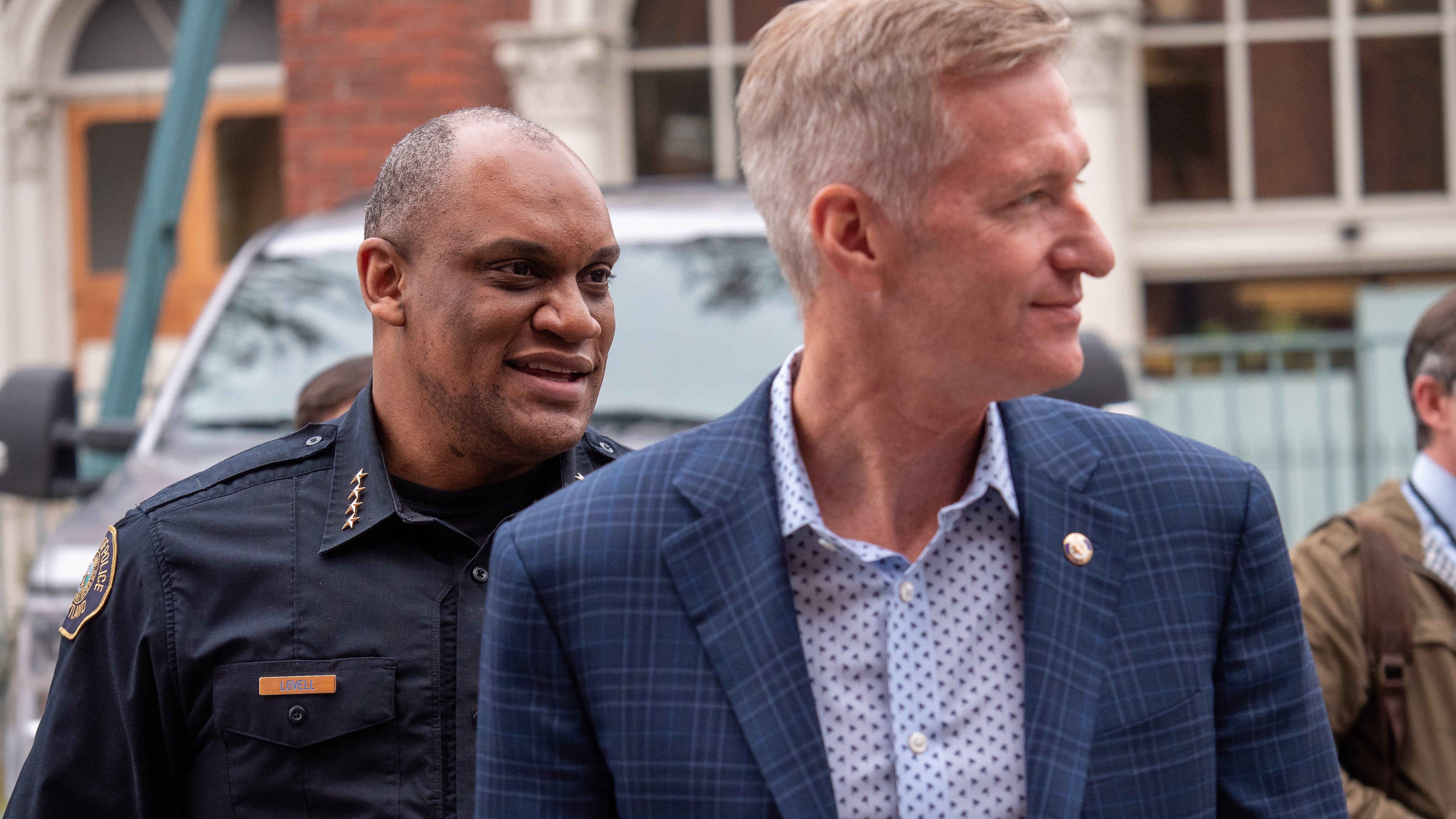Mayor Ted Wheeler will send a list of sweeping legislative and policy requests to Gov.-elect Tina Kotek and state lawmakers Dec. 27 in hopes they’ll be considered in the next legislative session, which begins Jan. 17.
The letter, obtained by WW, is a refinement of a list of requests made two weeks ago.
It asks Kotek to declare a homeless state of emergency and increase the Oregon State Police’s traffic enforcement presence in Portland.
Requests to lawmakers include $26 million for Portland’s homelessness relief efforts, funneling additional funds toward the state’s police training capacity, legislation that would “provide pay parity” to public defenders, and additional funds for affordable housing construction.
Wheeler will also ask the Legislature to convene “a table of stakeholders to address civil commitment statutes in the 2023 session, including but not limited to: lowering the threshold for civil commitments to align with comparator states, the length of time individuals can be held who are experiencing polysubstance or meth-induced psychosis, and statues related to transporting individuals to crisis stabilization centers.”
(Following the lead of New York Mayor Eric Adams, Wheeler first floated increasing civil commitments earlier this month—an idea that generated opposition from advocates.)
The letter also asks that the state “fast track” the construction of a crisis stabilization center, more often referred to as a sobering center, to allow people to come down off of highs or bouts of psychosis in a safe environment. Portland has been without a sobering center since January 2020.
The list reflects the magnitude of the city’s needs in the upcoming year—and its reliance on the state to fund most of the envisioned fixes.
The mayor has yet to solidify any locations—or enough funding—to set up six massive tent encampments he hopes will replace sidewalk camping. And the Portland Police Bureau has struggled to hire and train police officers to bolster its ranks since the 2020 George Floyd protests. Wheeler’s list does not specifically ask for funding for the proposed encampments, but it’s likely that a portion, if not all, of the $26 million requested for discretionary homeless services funding would go toward the plan.
State Reps. Rob Nosse and Maxine Dexter (D-Portland) met with representatives of the mayor’s office and Multnomah County Chair-elect Jessica Vega Pederson two weeks ago to discuss Wheeler’s requests.
According to the mayor’s office, Wheeler will meet with Kotek Tuesday afternoon to discuss how the state can bolster the city’s efforts to combat homelessness. This will be the third weekly meeting between the two leaders; another is scheduled next week.
Kotek has pledged to issue an executive order laying out a statewide affordable housing plan on her first day in office.
The mayor’s office also asks in its letter that Multnomah County engage with the city in determining how to transport Portlanders in crisis to destinations other than hospitals. (American Medical Response, which transports Portlanders to hospitals only, is under contract with the county.)
“This is not always where a person needs to go. Currently, when a client needs a different end destination, Portland Fire and Rescue has to provide transportation to that destination,” the mayor’s office writes. “Financially, the party that owns the emergency services contract (currently, the County) is the one who can collect Medicaid reimbursement. This makes reimbursement for City services cumbersome and inefficient.”
